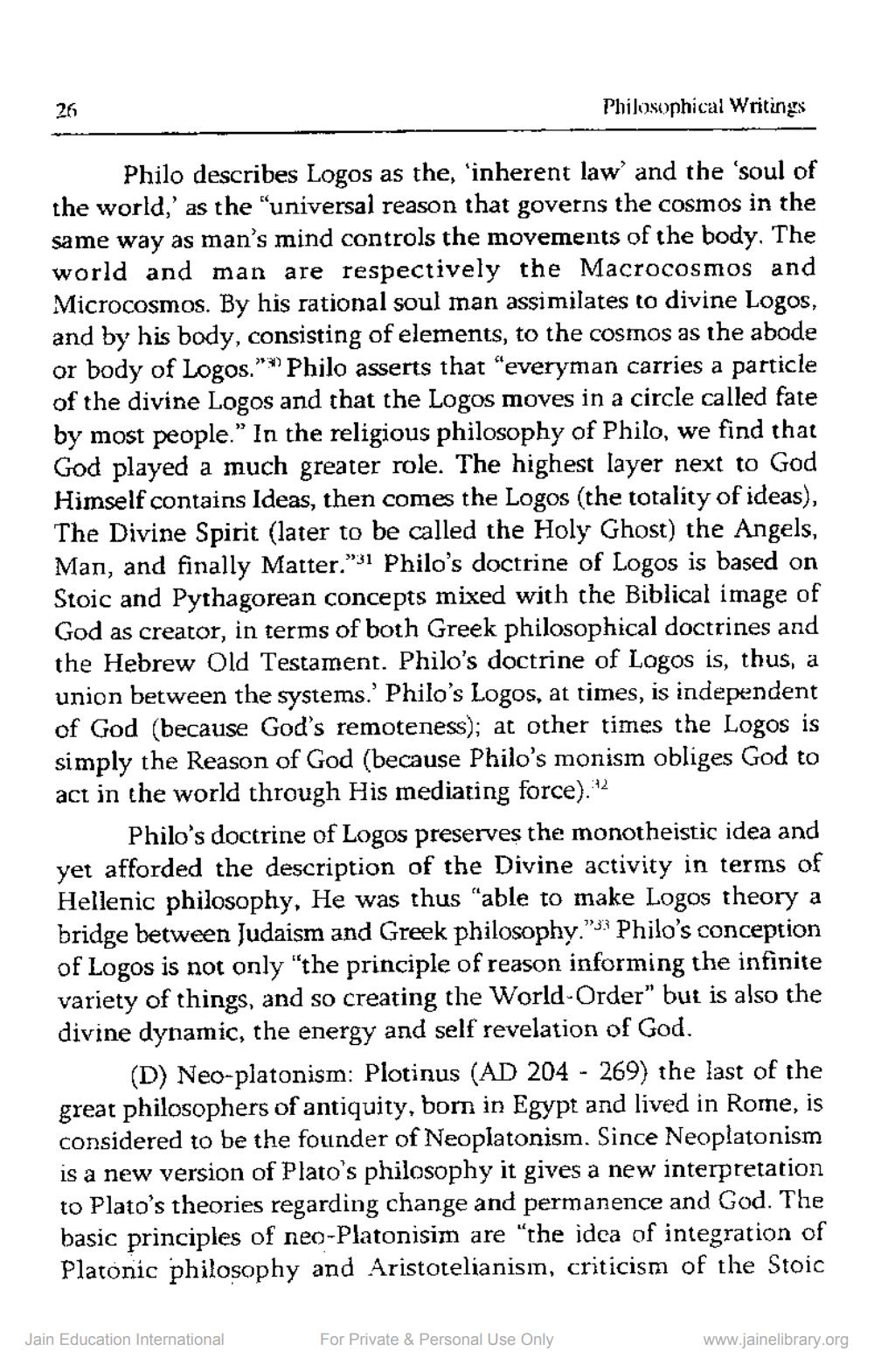Book Title: Logos in Philosophy Religion and Science Author(s): Hemant Shah Publisher: Z_Philosophical_Writings_001802.pdf View full book textPage 8
________________ 26 Philosophical Writings Philo describes Logos as the, 'inherent law and the 'soul of the world,' as the "universal reason that governs the cosmos in the same way as man's mind controls the movements of the body. The world and man are respectively the Macrocosmos and Microcosmos. By his rational soul man assimilates to divine Logos, and by his body, consisting of elements, to the cosmos as the abode or body of Logos."*" Philo asserts that "everyman carries a particle of the divine Logos and that the Logos moves in a circle called fate by most people.” In the religious philosophy of Philo, we find that God played a much greater role. The highest layer next to God Himself contains Ideas, then comes the Logos (the totality of ideas), The Divine Spirit (later to be called the Holy Ghost) the Angels, Man, and finally Matter."31 Philo's doctrine of Logos is based on Stoic and Pythagorean concepts mixed with the Biblical image of God as creator, in terms of both Greek philosophical doctrines and the Hebrew Old Testament. Philo's doctrine of Lagos is, thus, a union between the systems.' Philo's Logos, at times, is independent of God (because God's remoteness); at other times the Logos is simply the Reason of God (because Philo's monism obliges God to act in the world through His mediating force).12 Philo's doctrine of Logos preserves the monotheistic idea and yet afforded the description of the Divine activity in terms of Hellenic philosophy, He was thus "able to make Logos theory a bridge between Judaism and Greek philosophy."33 Philo's conception of Logos is not only "the principle of reason informing the infinite variety of things, and so creating the World-Order" but is also the divine dynamic, the energy and self revelation of God. (D) Neo-platonism: Plotinus (AD 204 - 269) the last of the great philosophers of antiquity, born in Egypt and lived in Rome, is considered to be the founder of Neoplatonism. Since Neoplatonism is a new version of Plato's philosophy it gives a new interpretation to Plato's theories regarding change and permanence and God. The basic principles of neo-Platonisim are “the idea of integration of Platonic philosophy and Aristotelianism, criticism of the Stoic Jain Education International For Private & Personal Use Only www.jainelibrary.orgPage Navigation
1 ... 6 7 8 9 10 11 12 13 14 15 16 17 18 19 20 21 22
